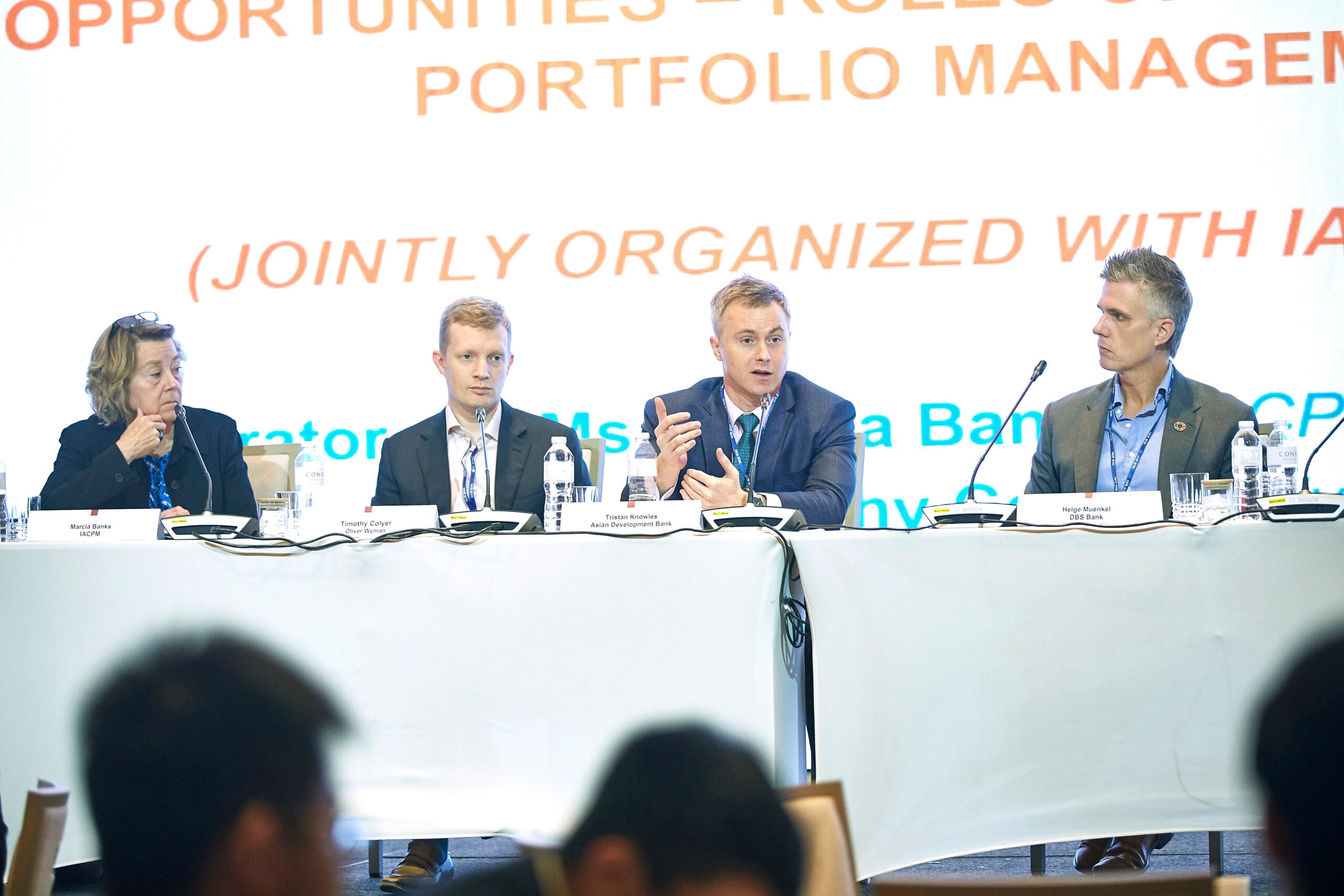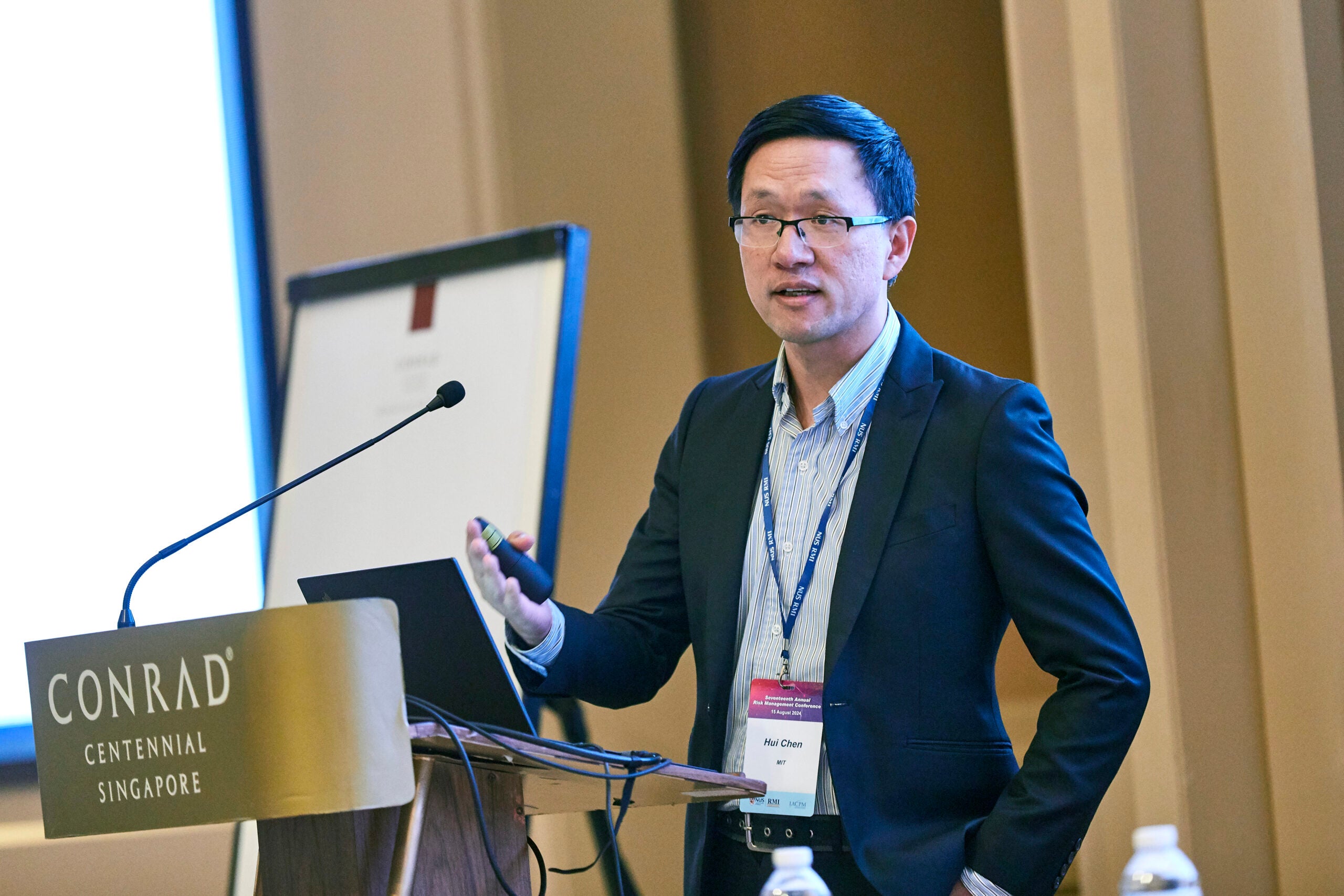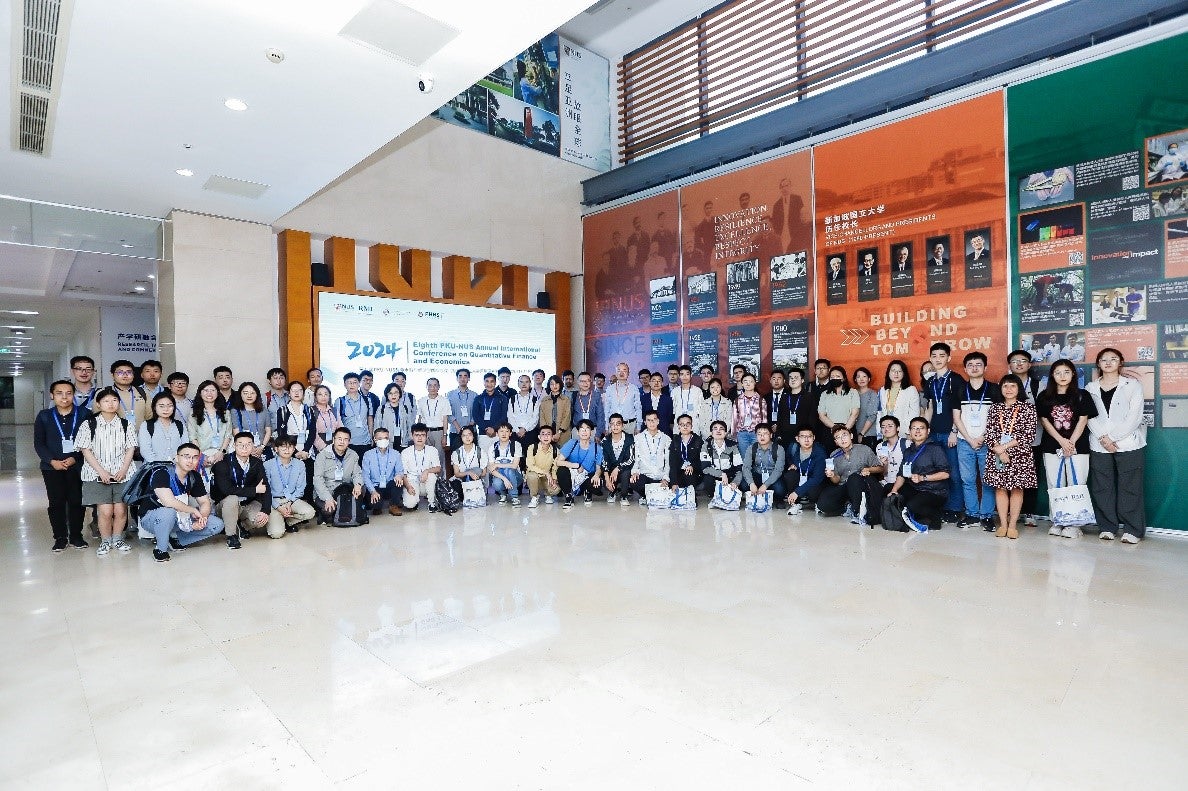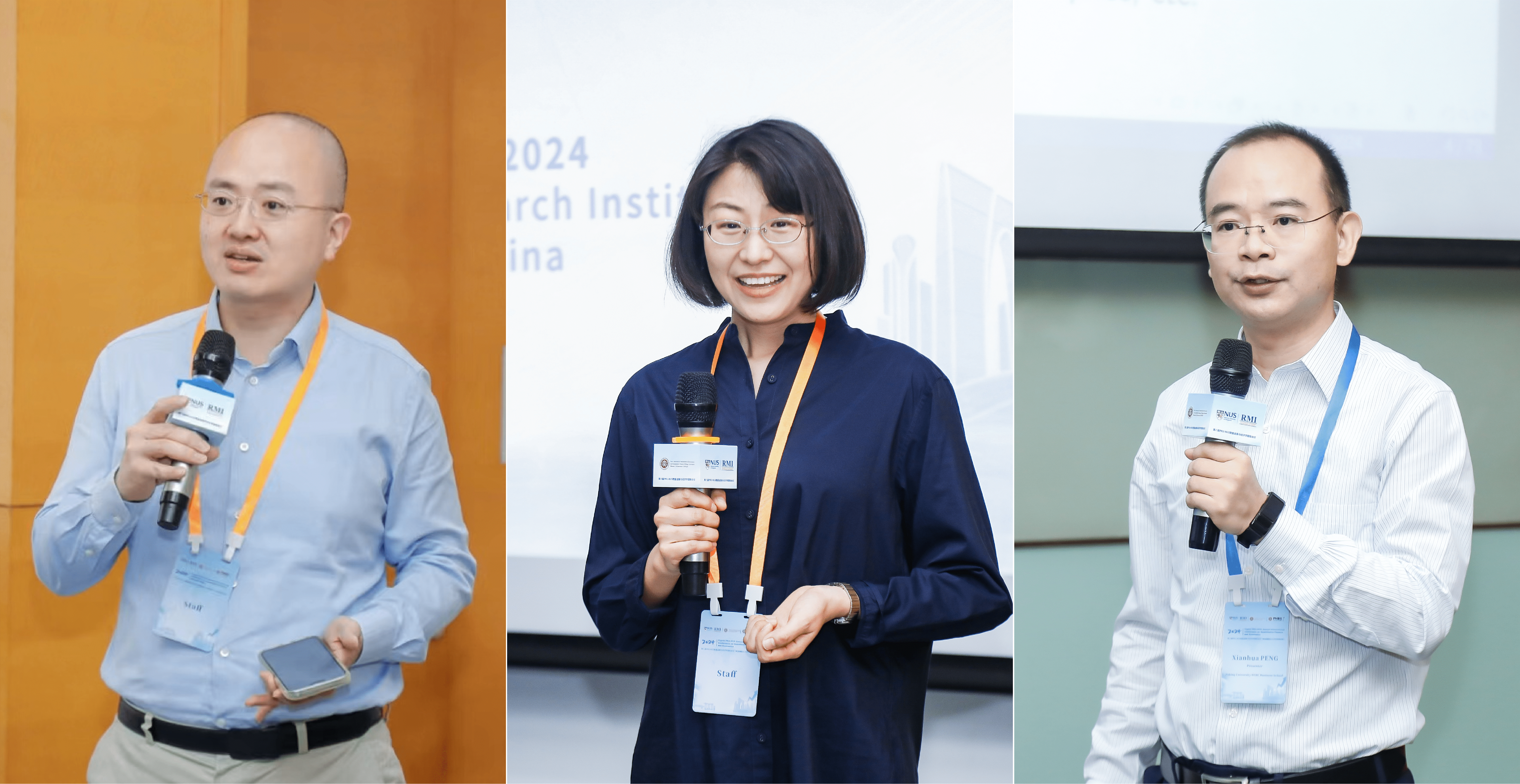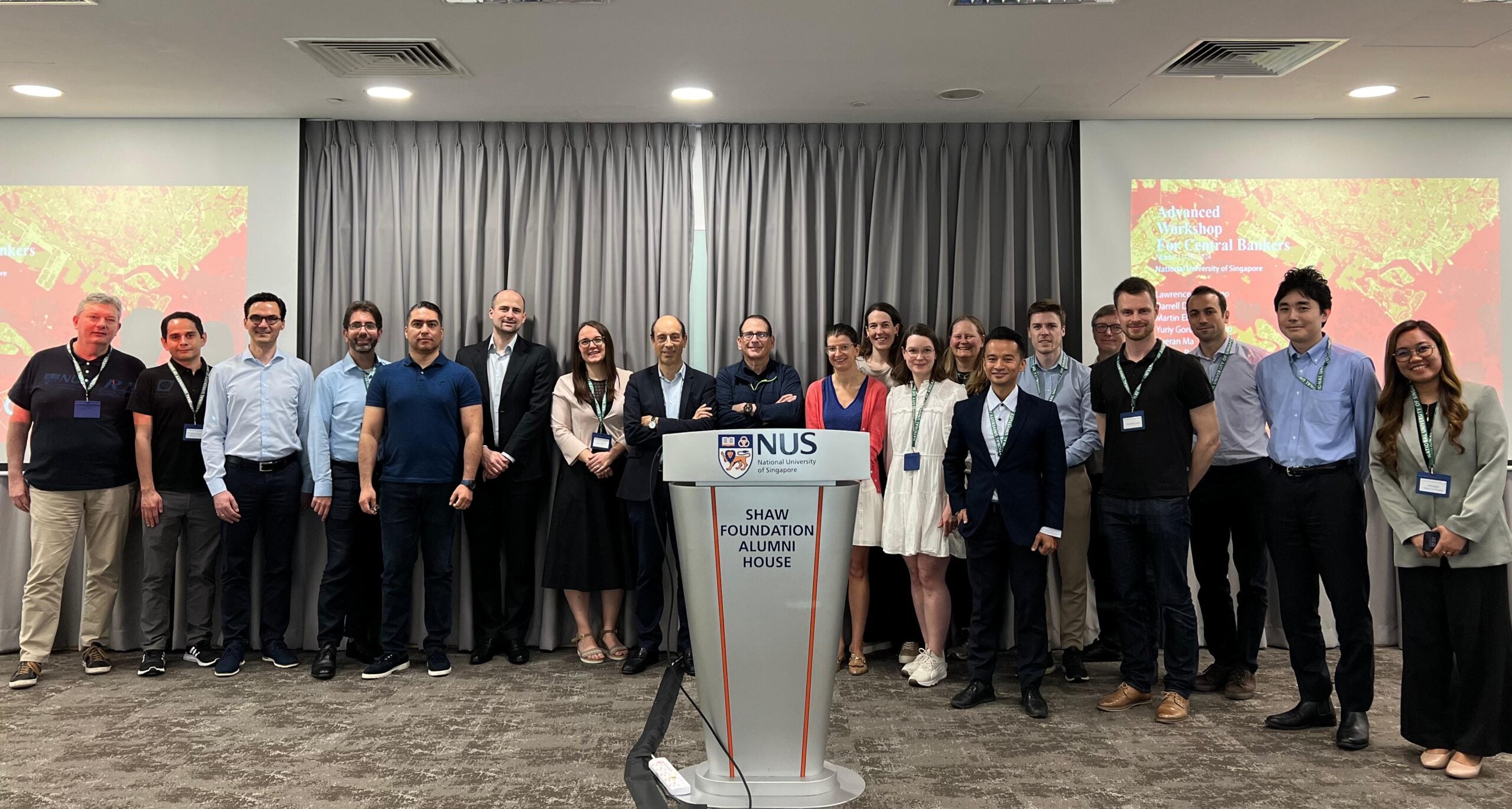|
| |
NUS RMI Hosts the Seventeenth Annual Risk Management Conference on 15 August 2024
By Liu Jingdi, MFE Student
|
|
| |
On 15 August 2024, the Seventeenth Annual Risk Management Conference was held at Conrad Centennial Singapore. Incumbents from financial and consulting firms such as the World Bank, the Big Four consulting firms, Standard Chartered Bank and GIC, as well as professors and researchers from world-renowned universities such as the National University of Singapore (NUS), Nanyang Technological University (NTU), Singapore Management University (SMU), Fudan University, the University of Hong Kong, Northwestern University and the University of Toronto participated in the conference. Alumni and current students of NUS MFE are also invited to attend the conference. The conference focuses on various aspects of risk management, including financial challenges and opportunities in ESG climate change, digital quantitative finance, climate finance, computational finance and market strategies, banking shocks, and more. First, Director, NUS Risk Management Institute (RMI) and Professor of Economics, NUS Prof Yi-Chun Chen delivered the opening welcome speech. Following this Prof. Neng Wang, distinguished visiting professor at RMI then introduced the keynote speaker Prof. Janice Eberly, who is the Distinguished Fellow at the Golub Centre for Finance and Policy, visiting the Sloan School at MIT. She has also held the position of James R. and Helen D. Russell Professor of Finance at Northwestern University and was the former Chief Economist of the U.S. Department of the Treasury.
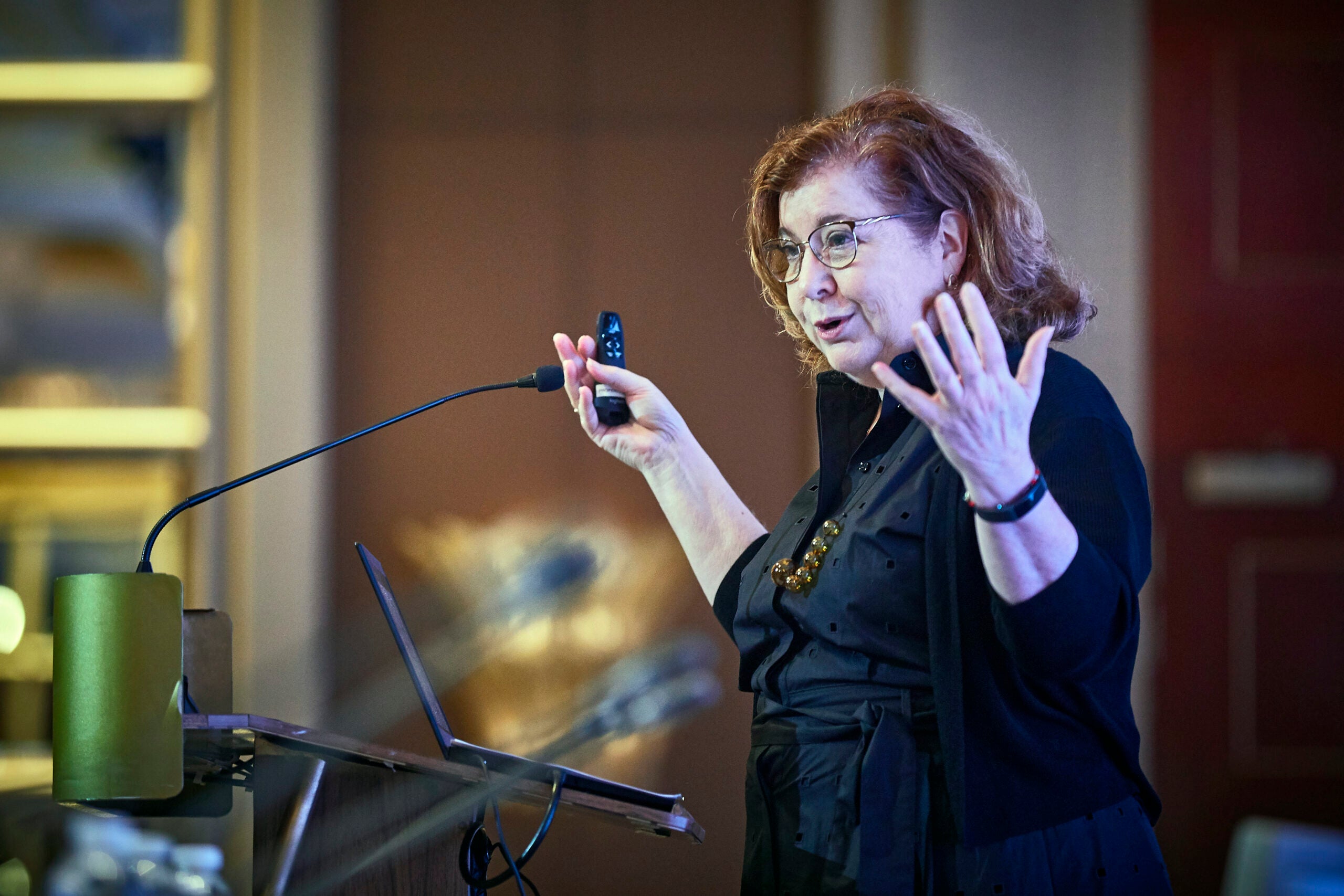
The conference officially opened with Prof. Janice Eberly's keynote address on Intangibles as Financial Assets, Valuation, and Growth. She pointed out that many business and economic leaders are focused on adding value and improving living standards, and as a result, the proportion of intangible assets is increasing, mainly in the high-tech and health industries. Moreover, intangible assets and tangible assets are very different from tangible assets in terms of financing, growth and productivity, and at the same time, intangible assets also create new risks, such as difficult to establish property rights, and difficult to mortgage.
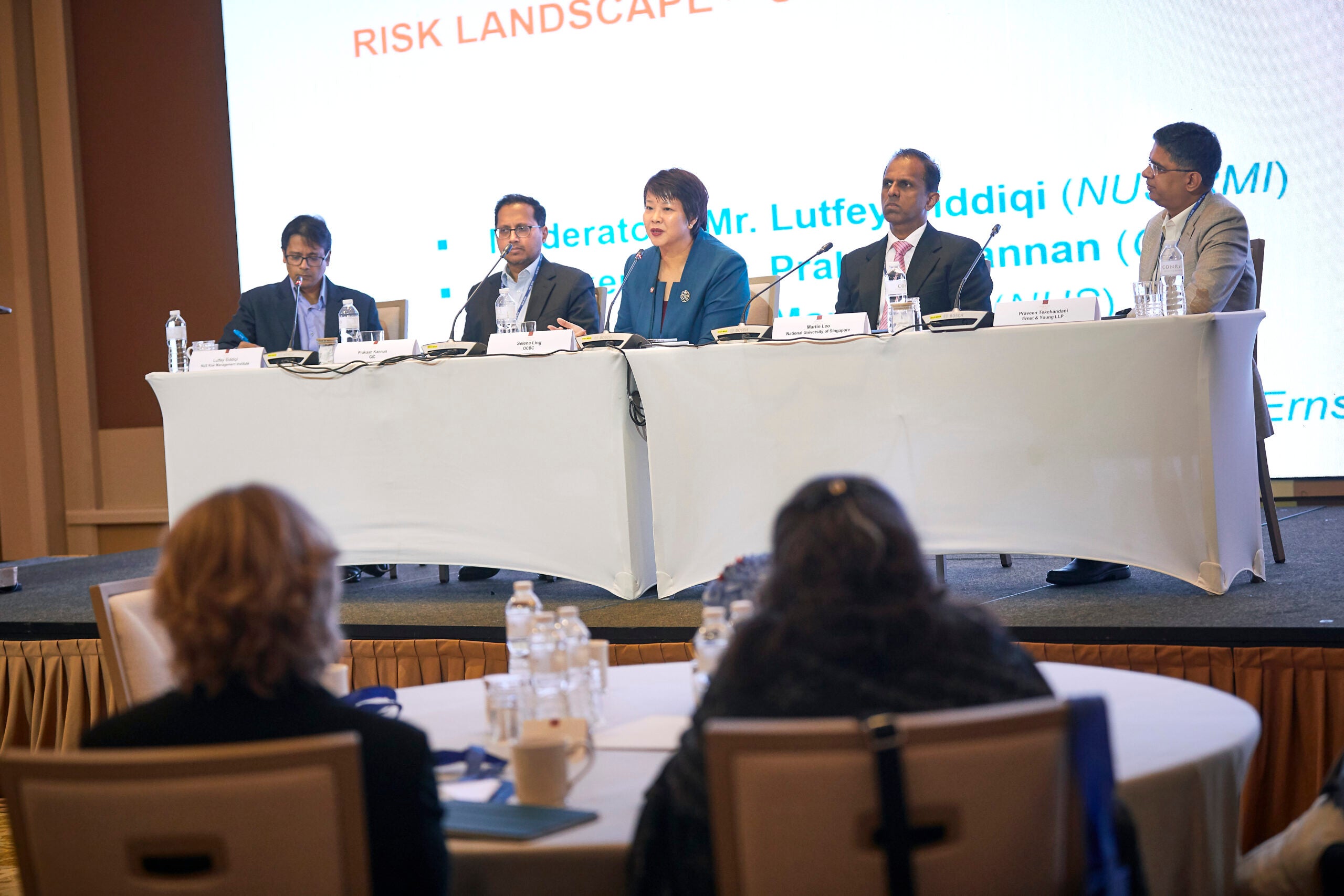
Next, the conference featured two policy forum panel discussions featuring several industry experts. The first session was on “Risk Landscape - Complexity and Feedback Loops” which featured panelists such as Dr. Prakash Kannan, Chief Economist and Director of the Economics & Investment Strategy at GIC, Dr. Martin Leo, Chief Risk Officer at NUS, Ms. Selena Ling, Chief Economist & Head of Global Markets Research & Strategy Global Markets at OCBC and Mr. Praveen Tekchandani, Partner, Climate Change & Sustainability Services at Ernst & Young LLP. This session was chaired by Mr. Lutfey Siddiqi, Adjunct Professor, NUS RMI and discussed their perspectives on political polarization, geo-political flash points and their implications, unclarity of monetary policy pathways and operational, cyber and climate related risks.
|
|
|
| |
The second panel session, was jointly organized with IACPM, on “Realizing Climate Finance Opportunities” began with some opening remarks by Mr. Timothy Colyer, Partner and Head of Climate and Sustainability, Asia Pacific at Oliver Wyman. Later he was joined by other panelist including, Mr. Tristan Knowles, Private Sector Climate Finance Specialist at Asian Development Bank and session chair Ms. Marcia Banks, Deputy Executive Director, IACPM. The experts' heated discussions included innovative approaches and challenges in managing climate change financial risk, and the important role of leading large financial institutions, such as innovative approaches in different areas: climate risk scale, tax credit conversion; And stressed the urgency of expanding climate finance to meet the zero-carbon requirement. |
|
| |
The afternoon session post-lunch headed into the academic discussion which began with a plenary talk by Prof. Hui Chen, Nomura Professor of Finance at the Sloan School of Management at MIT, on “Teaching Economics to the Machines”. He explained that his model can be guided by transfer learning and economic principles, based on which the model can be trained faster with a smaller sample size, and can be more general. This framework can also be easily applied to other machine learning models. He also pointed out that a variety of applications can benefit from a mix of theoretical and data approaches. Following the plenary talk, the sessions were divided into four parallel tracks with topics under an overarching theme; Track A on Digital Quantitative Finance, Track B on Climate Finance, Track C on Computational Finance and Market Strategies, and Track D on Banking Sector Shocks. |
|
| |
Track A on Digital Quantitative Finance, was kick-started by a semi-plenary talk from Prof. Thorsten Koch of Technische Universitaet zu Berlin & Zuse Institute Berlin on “A Quantum Ready Model for Large-Scale Constrained Portfolio Optimization”. Following this scholars and professors from different universities shared the latest research on reinforcement learning, cryptocurrencies, blockchain, and spillover effects. Participants not only discussed how to use advanced computing technologies and algorithms to improve the efficiency and accuracy of financial decisions, but also had a heated discussion on how to effectively regulate and utilize emerging technologies such as cryptocurrencies and blockchain to reduce financial risks. These discussions not only revealed the huge potential of digital technologies in the financial sector, but also highlighted the importance of sound regulation and risk management. Track B on the Climate Finance featured a semi-plenary talk on “Climate Change, Demand Uncertainty, and Firms’ Investments: Evidence from Planned Power Plants” by Prof. Thomas Schmid of University of Hong Kong. The paper presentations in this session focused on how financial innovation can contribute to green transformation and achieve the Sustainable Development Goals. During the discussion, many experts emphasized the key role of green investment, carbon credit and other mechanisms in promoting the development of low-carbon economy, and shared successful cases and challenges, providing valuable practical experience and inspiration for participants.
Track C on Computational Finance and Market Strategies was kick-started by a semi-plenary talk by Prof. Rudiger Frey, from Vienna University for Economics and Business. His is currently engaged in a study on “A Mean Field Game Analysis of Fire Sales and sales Systemic Risk under Regulatory Capital Constraints”. The paper presentations in this session focused on achievements in deep learning algorithms for high-dimensional nonlinear partial differential equations (PDE) in complex financial scenarios, optimized trade execution problem with uncertain linear demand functions, trade-offs between exploration and exploitation, non-stationary, and resource constraints. Topics such as a nonlocal BSDE approach to dynamic mean-variance asset allocation in general incomplete markets and an asset clustering method based on tree model were discussed.
Track D on Banking Sector theme panel, was kick-started by a paper presentation on increased regulation of large banks has led to an increase in the vulnerability of smaller banks, which was reflected in the regional banking crisis in 2023. The other presentations explored topics such as using a model that incorporates the time-varying dependence of systemic risk and mispricing on firm and option characteristics, the real effect of financial shocks: evidence from opioid prescriptions and last but not the least, were bank CEOs rewarded for taking subprime gambles?
To conclude, this conference was a gathering of global wisdom and in-depth discussion at the forefront of risk management. Such a conference not only builds a platform for exchanges and cooperation between academia and industry, but also promotes interdisciplinary and cross-border knowledge sharing and innovative thinking collision. During the conference, experts and scholars conducted in-depth and detailed discussions on multiple dimensions of risk management, from theory to practice, and from macro to micro, providing valuable insights and strategies for coping with increasingly complex and changeable risk challenges around the world. The Seventeenth Annual Risk Management Conference was not only an academic and practical feast, but also a powerful impetus to promote the continuous development of the field of risk management. It shows us that in the face of the challenges of future uncertainties, by strengthening international cooperation, promoting knowledge innovation and training professionals, we can more effectively manage risks, seize opportunities and contribute to the stable development of the global economy and society. The success of the conference has undoubtedly set a new milestone for the development of risk management field, and also points the direction for subsequent research and practice. |
|
|
| |
NUS RMI Hosts the Eighth PKU-NUS Annual International Conference on Quantitative Finance and Economics - 18 to 19 May 2024
By Xu Weixi, MFE-DDP Student
|
|
| |
On May 18-19, 2024, the Eighth PKU-NUS Annual International Conference on Quantitative Finance and Economics was held at the Suzhou Research Institute of the National University of Singapore (NUS). I was fortunate to participate in this conference and learned a lot, and the international cooperation in the field of quantitative finance and economics, as well as interdisciplinary and cross-regional academic exchanges are of great significance to promote the development of academia and its applications.
|
|
| |
At the opening ceremony, Professor Chen Yi-Chun, Director of the NUS Risk Management Institute (RMI), Associate Professor Cheng Xue from the Department of Financial Mathematics at the School of Mathematical Sciences at Peking University (PKU), and Associate Professor Peng Xinahua from PKU’s HSBC Business School delivered welcome remarks successively. In his speech, Prof. Chen Yi-Chun reviewed the history of the PKU-NUS Annual International Conference on Quantitative Finance and Economics, welcomed the participants, and stated that he looked forward to the continued close cooperation between PKU and NUS. A/P Cheng Xue introduced the research trends of the Key Laboratory of Quantitative Economics and Mathematical Finance of the Ministry of Education of Peking University, and hoped that this conference could promote more in-depth and extensive exchanges and collaborations in the field. Lastly, in his speech, Prof. Peng Xianhua expressed his gratitude to the partners of this conference, reviewed and shared the academic achievements of Peking University HSBC Business School in 2023, and hoped that this academic conference could facilitate the scholarly dialogues and enhance the academic frontier.
|
|
|
| |
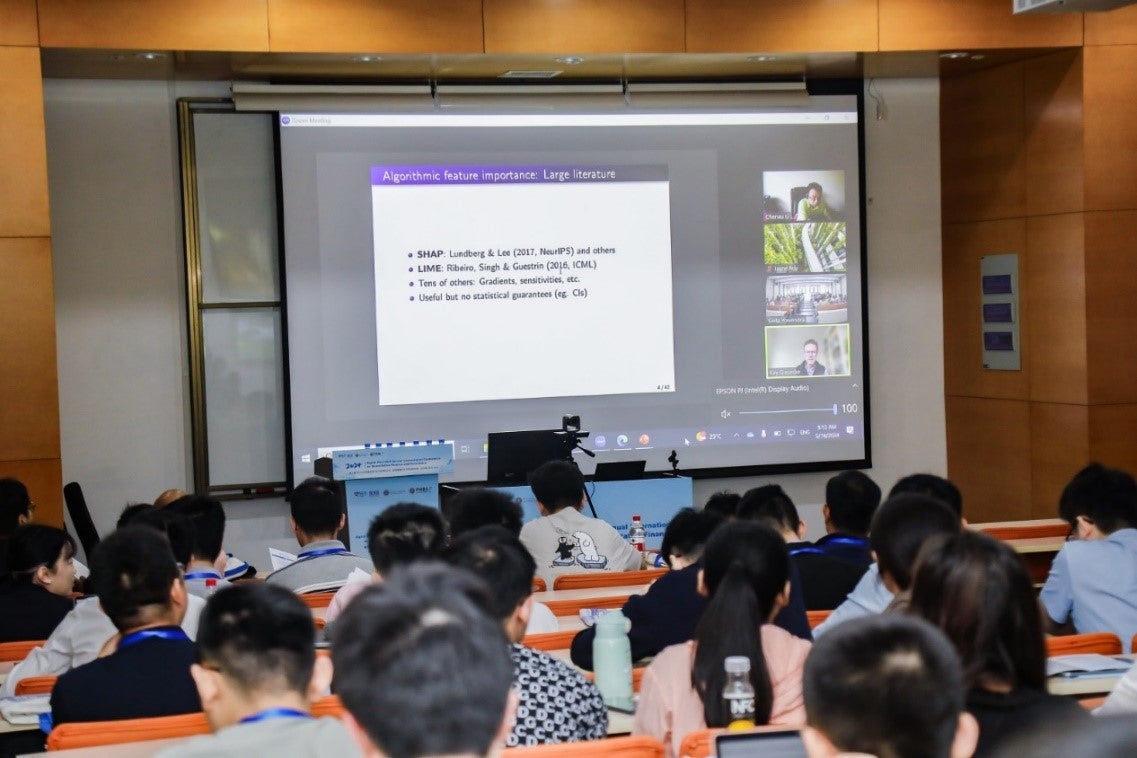
In the field of financial engineering, I was very impressed by the AICO hypothesis testing framework introduced by one of the keynote speakers, Professor Kay Giesecke from Stanford University. One of the cores of financial engineering is model construction and validation, and the AICO framework provides a new perspective to evaluate and explain the importance of model features by adding covariance to the model training process. This has important practical application value for improving the transparency and explainability of financial models, especially in areas of financial services that require high levels of regulation, such as credit risk assessment.
|
|
|
|
|
| |
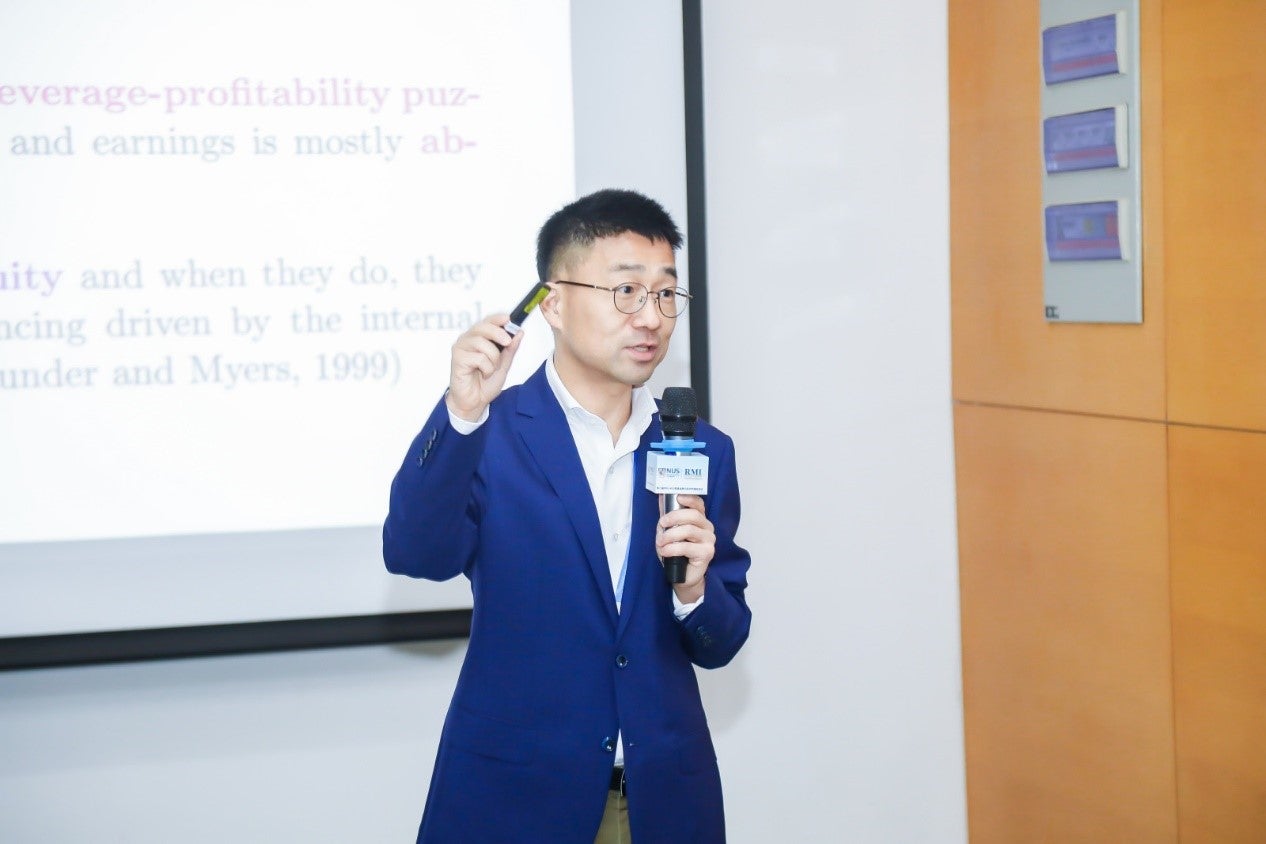
Risk management, as a key component of the financial sector, was also explored in this conference. The second keynote speaker, Professor Wang Neng's speech on dynamic capital structure proposed a new time-varying dynamic trade-off theory, which not only enriches the theory of capital structure, but also provides a new perspective for risk management. By considering debt as a state variable, companies can better assess and manage financial flexibility, which is instructive for risk control and optimal capital allocation.
|
|
|
|
|
| |
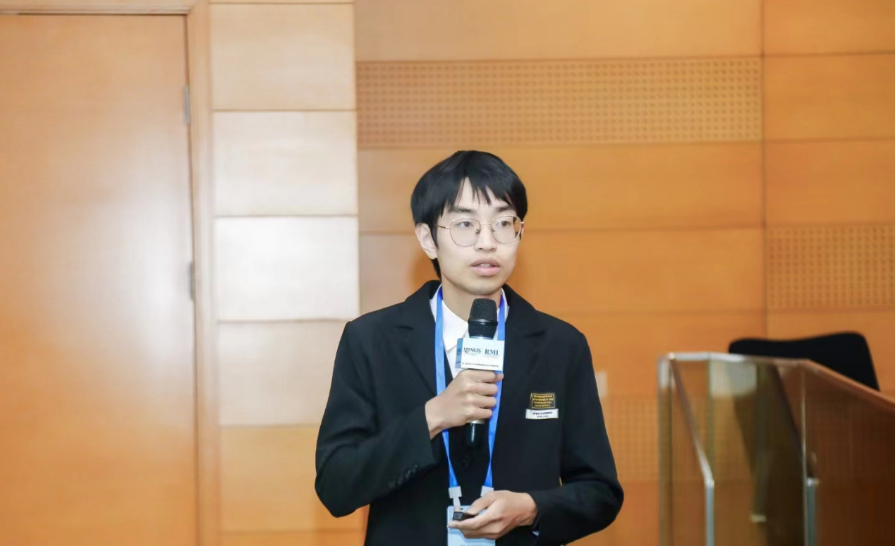
Personally, I was honored to participate in this conference as a student of the Double Master’s Degree (DDP) Program offered by Peking University’s HSBC Business School and NUS RMI, in which I studied the impact of oil price shocks on stock market returns and exchange rate fluctuations, and proposed an improved De-GRU model to predict the rise and fall of the stock market, which comes from the combination of machine learning and financial engineering knowledge I have learned. I am very grateful for this opportunity to apply the knowledge acquired through the DDP and have a platform in this conference to network with like-minded individuals from academia and industry. I not only deepened my understanding of financial market volatility and its forecasting models but also honed my research and academic communication skills. In future research, I plan to expand the application of the current model to account for a wider variety of oil price shocks as well as other potential factors, such as macroeconomic indicators and policy changes, on the dynamics of the stock and foreign exchange markets.
The conference also reflected the importance of international cooperation, as it brought together experts and scholars from different disciplines who discussed and solved problems in the field of quantitative finance and economics. These exchanges help promote an in-depth understanding of ideas in the field as well as innovative thinking. In the context of financial engineering and risk management, this conference challenges and aims to update the traditional models and theories in the academic community. For example, the AICO model, which provides a new perspective for the construction and verification of financial models. Similarly, the proposal of dynamic capital structure theory provides new theoretical support for risk management and capital allocation. During the conference, I applied the knowledge of machine learning and financial engineering to study the impact of oil price shocks on stock returns and exchange rate fluctuations, and proposed an improved De-GRU model to show how academic theory can be applied to the prediction and analysis of financial markets, reflecting a research method that combines theory and practice.
The conference is not only a showcase of academic achievements, but also a manifestation of knowledge updating and technological progress in the field of financial engineering and risk management. Through such international academic conferences, it is possible to promote the exchange of ideas among scholars, stimulate new research inspiration, jointly respond to the complexity and uncertainty of financial markets, and contribute to financial stability and economic development.
Finally, I would like to thank the Risk Management Institute of the National University of Singapore, the HSBC Business School of Peking University, and the Key Laboratory of Quantitative Economics and Mathematical Finance of Peking University for jointly organizing this academic conference and giving me this opportunity to learn. I hope that the two institutions will continue to collaborate in the future!
|
|
|
|
|
| |
NUS RMI Co-organized the Advanced Workshop for Central Bankers from 11 to 16 March 2024
By Yue Lanxin, MFE Student
|
|
| |
Background on the Workshop
During the week of 11 to 16 March 2024, NUS Risk Management Institute and Northwestern University’s Center for International Microeconomics in Collaboration with Monetary Authority of Singapore, hosted the Advanced Workshop for Central Bankers, the first of its kind workshop in Singapore. A few selected students from RMI’s Master of Science (Financial Engineering) Program got a unique chance to attend a few of the sessions during the workshop. As part of this I got to attend the session on “International Capital Flows” by Professor Jesse Schreger.
|
|
| |
Insights into International Capital Flows and Global Capital Allocation On 14 March 2024, I attended a session of the Advanced Workshop for Central Bankers. This particular session, conducted virtually by Professor Jesse Schreger, focused on international capital flows and global capital allocation, providing central bankers with essential knowledge on the dynamics of global financial movements.
Professor Schreger opened the session by discussing the balance of payments and Net Foreign Assets (NFA). He explained how NFAs evolve due to net purchases of foreign assets and valuation changes. Additionally, he ranked countries based on their NFAs and discussed the underlying reasons for these rankings. The workshop highlighted the exponential growth of world cross-border investments in the past 30 years. Professor Schreger categorized assets and liabilities into four main types: Portfolio Investment (PI), Other Investment (OI), Foreign Direct Investment (FDI), and Derivatives (D). Each category behaves differently under various economic conditions, impacting NFAs in unique ways. A significant portion of the workshop was dedicated to analyzing the international investment positions of the United States and China, with detailed data and charts illustrating the trends in assets, liabilities, and NFAs for both countries. These case studies highlighted the importance of understanding current dynamics and potential future trends in international finance. The workshop also delved into the roles of tax havens and currency in global capital allocation. Schreger highlighted how tax havens facilitate the flow of global capital by offering favorable tax conditions, thus attracting investments from multinational corporations and wealthy individuals. In terms of how currency would affect global capital allocation, Schreger presented data showing how investors often prefer bonds denominated in their currency or USD, and the actions and related impacts of local currency issuers. This home currency bias and home country bias highlight the importance of understanding the currency composition of international portfolios. Through a comprehensive exploration of international capital flows, the Central Bankers Workshop has introduced central bankers with the basic knowledge of global capital allocation. By understanding the key concepts introduced in this workshop, participants will be better prepared to grasp the complexities of global finance and apply this knowledge in their future work. Lastly, some of my classmates who attended a couple of the other session at the workshop had this to say about their experiences attending the sessions and getting a chance to interact with some of the central bankers present at the workshop. “After listening to Professor Martin Eichenbaum's (Northwestern University) lecture on monetary policy, I have a more profound understanding of macroeconomy. In my undergraduate courses, I only heard about the Fisher effect, which is the positive correlation between nominal interest rates and the rate of inflation. The anti-Fisher effect mentioned by Professor Eichenbaum in the course gives opposite results, such as Keynes's Liquidity Preference Theory and Friedman's Theory of Demand for Money, because the Fisher effect is based on different assumptions, so it produces opposite results. I am honored to participate in this event, which has broadened my thinking. I used to view the economy only from the perspective of a policy recipient, but this lecture has inspired me to think about how to conduct macro-control as a policy maker and affect the development of the economy.” – Liu Jingdi “It was a good opportunity for me to join this workshop, where I interacted with central bankers from many countries. Specifically, I talked to bankers from Japan and Philippines. I gained first-hand information about the current situation and monetary policies in Japan. The bankers also shared their personal stories living in those countries and their thoughts on the labour union, living costs, inflation, wages, etc.” – Wang Yihan
|
|
|


